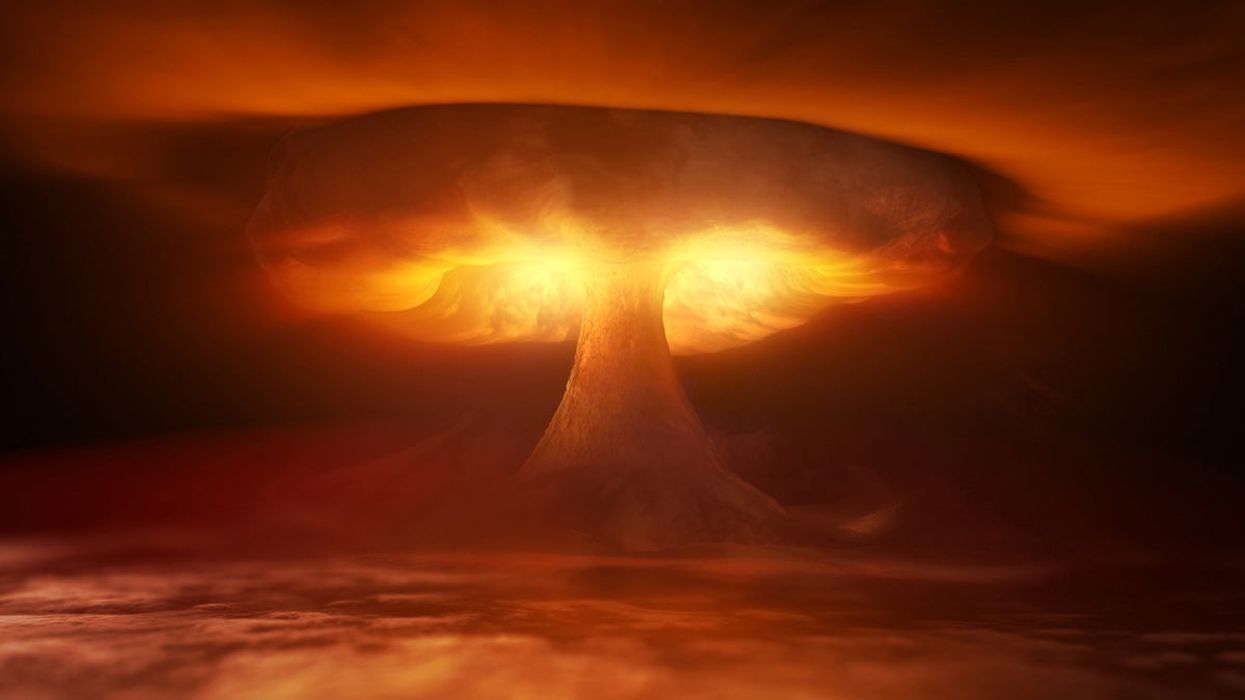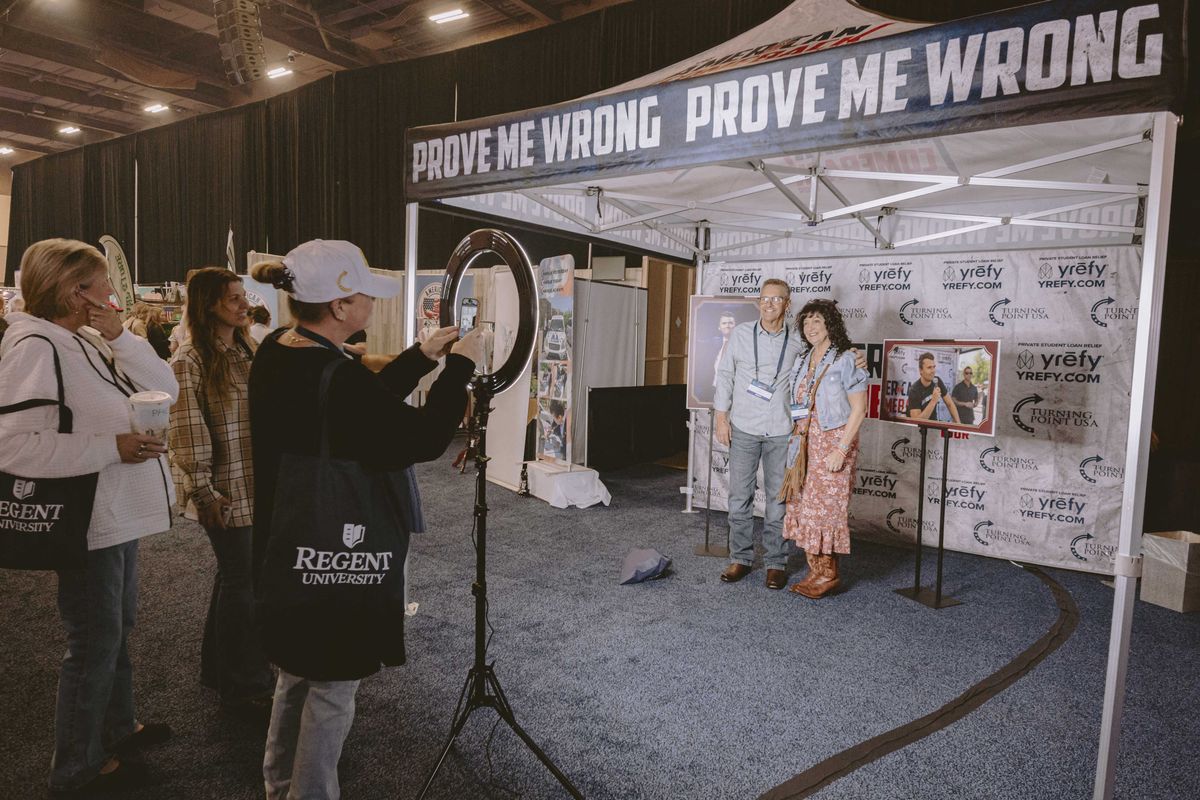News
Greg Evans
May 28, 2018

Picture:
Getty Images/iStockphoto
The spectre of nuclear war is something that has been hanging over the human race for the best part of a century now.
The Cuban missile crisis, the Cold War and now the potential threat of North Korea are a little too hard to ignore.
Although we are yet to experience a nuclear war, it doesn't mean that there aren't already precautions in place for how to deal with such a catastrophic event.
A document released by the United States Environmental Protection Agency (EPA) details exactly what advice will be given to citizens should their region be hit by a nuclear explosion.
A message from the EPA in the document says:
Ideally, these messages never will be needed. [N]evertheless, we have a responsibility to be prepared to empower the public by effectively communicating how people can protect themselves and their families in the event of a radiological or nuclear emergency.
Yet with that in mind here are a few important announcements and pieces of advise that will be made by local authorities and government should the worse happen.
What will happen to people affected in the neighbourhoods?
As appropriate: Lives have been lost, people have been injured, and homes and businesses have been destroyed.
All levels of government are coordinating their efforts to do everything possible to help the people affected by this emergency.
As lifesaving activities continue, follow the instructions from emergency responders...
The instructions are based on the best information we have right now; the instructions will be updated as more information becomes available.
This is to ensure that despite the situation that no one makes any hasty decisions and everyone is kept as safe as possible.
Are there controls on food?
Officials might advise against eating vegetables from home gardens.
In some situations, officials also might determine that it is necessary to take actions to prevent radioactive material from entering the food supply.
Steps might involve preventing livestock from grazing in potentially contaminated pastures or fields and ensuring that animals eat and drink only feed and water that had been previously stored.
When necessary, officials might act to stop certain foods from coming to market or limit consumption of certain foods that might be contaminated.
This makes logical sense as the need to protect all survivors extends well after the blast has taken place and safeguarding all food and supplies from contamination is a priority.
Are there controls on drinking water?
If alternative drinking water is needed, officials can provide bottle water, change the water source (such as switching to groundwater), reroute water from an unaffected water system or choose a combination of these actions.
Much like food, avoiding contaminated water is of the utmost importance.
If I am outside, what steps should I take to protect myself and my loved ones?
Cover your nose and mouth... Don't touch objects or debris related to the release... Go inside and stay inside.
Obviously, being outside is the worst possible place to be in a nuclear explosion as the fallout is likely to stick to skin and clothing. The spread of the fallout can be prevented when indoors by materials like concrete, metal and soil.
Is the air safe to breathe?
Federal, state and local partners are monitoring [AREA] to determine the location and levels of radioactive material on the ground and in the air.
The chances of the air being breathable after a nuclear blast are slim to none, as there will be radioactive smoke and fallout in the air. If you do happen to outdoors hold your mouth and nose until you can get inside. Once inside, close all doors and windows and turn off any fans or air conditioners or set them to recirculate. Using a gas mask or dust mask, if available, is also advisable.
If I am in a car or truck, what steps should I take to protect myself and my loved ones?
Shut the windows and vents. Close the windows and turn off the fan, air conditioner or heater if weather conditions permit. Otherwise set the fan, air conditioner or heater on to recirculate.
The document advises that if you can reach a building, you should try to get inside as soon as possible. If you can't, remaining in a vehicle is the safest option - and try to find a shady spot or cover if you can. You should also try to tune into the radio for any official updates or instructions. The same applies to people who may find themselves in a boat.
If people are told by health and emergency management officials to self-decontaminate, what does this mean?
[T]ake several easy steps to remove any radioactive material that might have fallen onto clothes, skin or hair.... Remove your outer clothes... Wash off... If you cannot shower, use a wet wipe or clean wet cloth to wipe any skin that was not covered by clothing... Gently blow your nose and gently wipe your eyelids, eyelashes and ears with a clean wet cloth... Put on clean clothes... Tune in.
Decontamination is very important in the event of a nuclear attack to prevent the spread of the fallout. Anything that has been contaminated should be placed into a plastic bag and placed outside or as far away from humans as possible. Showering with a lot of soap will help remove fallout from your skin yet conditioner should be avoided as it will cause fallout to stick to your hair. Pets should also be showered with water, shampoo and soap ,but should be handled with gloves while your nose and mouth are covered.
I am pregnant, is my baby in danger?
[M]ost radiation releases will not expose the foetus to levels high enough to cause harmful health effects or birth defects... Once dose levels to the expectant mother and foetus have been determined, your physician can consult with other medical and radiation professionals to identify potential risks (if any) and provide appropriate counselling.
Although this would be a terrifying situation for any expecting parent, an unborn baby would be protected by radiation from the uterus and the placenta. With that being said, a mother could still inhale or digest fallout so consulting an expert would be paramount to determine whether the baby would be suffering from any birth defects or health problems.
I am seeing a lot of information and instructions on internet blogs about what to do. Should I follow that advice?
Check official sources first. You can find the latest information at [INSERT WEBSITE HERE]. Blogs, social media and the Internet, in general, can provide useful information, but only if the source is known and trustworthy.
We realise how easy it is to get swept away with trends and fake news these days - but in the event of an emergency, only official information should be followed. Misinformation will be spread, but it is best to keep an eye on multiple sources via the internet, radio, television and call lines.
HT IFL Science
More: This map shows how likely you are to die in a nuclear blast
Top 100
The Conversation (0)













